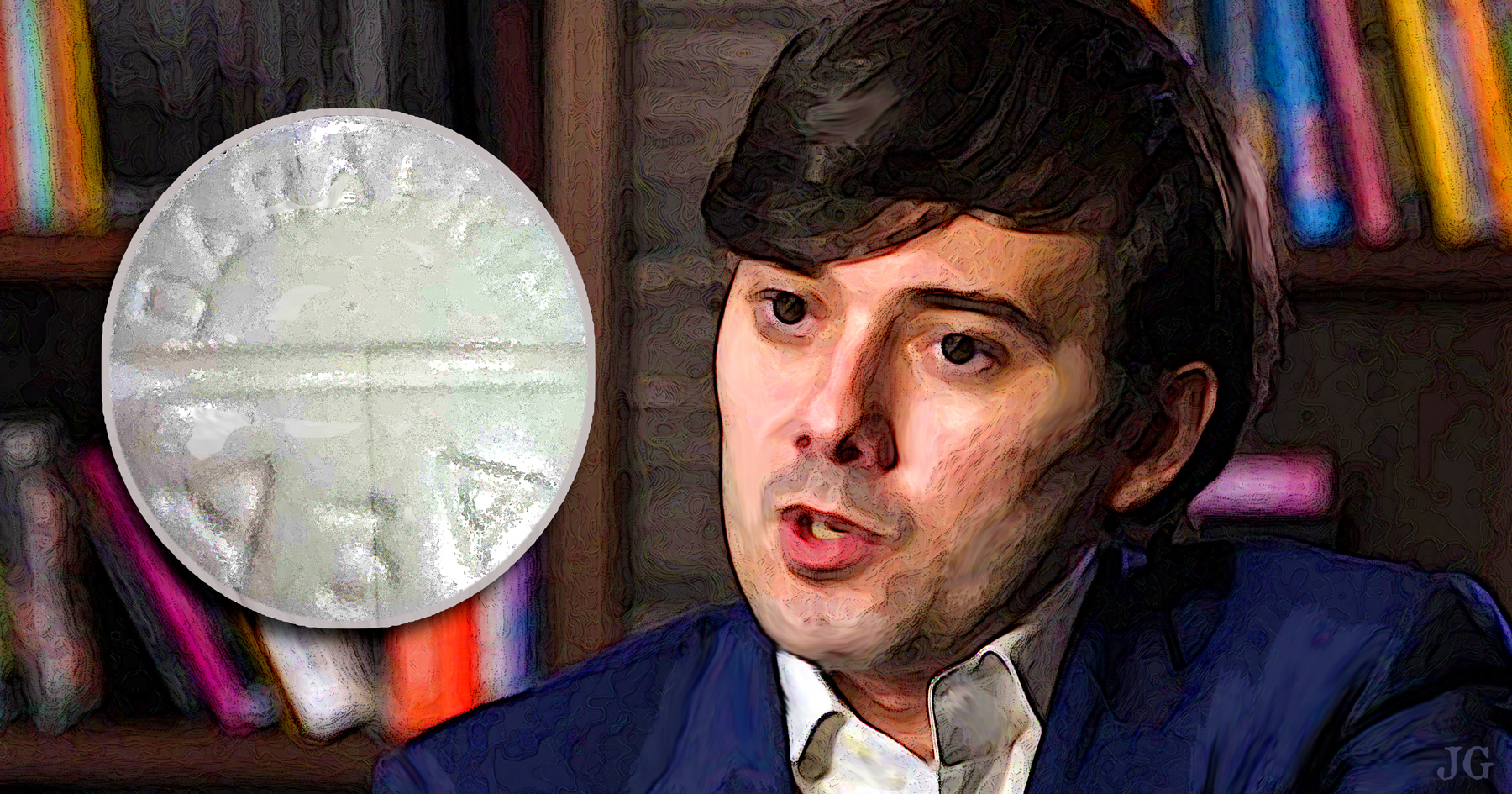When Martin Shkreli, CEO of Turing Pharmaceuticals, announced his August acquisition of Daraprim, the only available version of the anti-parasitic pyrimethamine, and his plan to raise its price from under $14.00 to $750 per dose, I did not comment. Everybody else seemed to know exactly how evil the man was, and how awful the system that allowed his machinations.
I knew only that I didn’t know enough.
After reading Mary J. Ruwart’s “The $750 Pill: Corporate Greed, Excessive Regulation — or Both?,” I’m glad I waited. According to Dr. Ruwart, who has worked in the pharmaceutical industry, even the barest facts in the case incite suspicion:
Daraprim was patented in the 1950s, and is used for treating parasitic infections in fewer than 13,000 people a year in the U.S. Turing bought exclusive rights to distribute the drug in the U.S. from Impax for $55 million; drug sales are less than $10 million/year. Impax itself bought daraprim several years earlier. It upped the price from $1 to $13.50/pill, causing the number of prescriptions to drop about 30%.
As Ruwart explains, the drug is no longer patent-protected, and “any generic company could make daraprim.…” So, what gives?
A company cannot just jump into the market. It has to prove — to the Food and Drug Administration — that its new generic would enter the bloodstream exactly as the old one. With the FDA’s red tape, this costs millions.
Which allows companies like Turing to effectively reclaim a monopoly for a little-used generic. Blame the FDA.
Still, there is some competition, from a company with a similar drug, priced at $1 per tablet.
This is Common Sense. I’m Paul Jacob.

